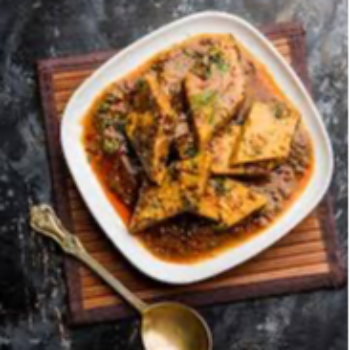In the bustling city of Nagpur, the Rao family exemplifies the typical modern Indian household—busy, ambitious, and deeply rooted in tradition. Like many families, the Raos face a unique challenge. Balancing their demanding schedules while keeping the flavors of tradition alive at the dinner table can be a daunting task. This is where Patodi, a traditional Maharashtrian dish, comes to the rescue, offering a perfect blend of convenience and authenticity that modern families, like the Raos, crave.
A Tale of Tradition and Modernity
Meet Priya Rao, a software engineer by profession and a mother of two energetic boys. Her husband, Arjun, is a marketing executive who often travels for work. Despite their hectic lives, the Raos cherish their family dinners, seeing them as a sanctuary from the chaos of the outside world. However, preparing a wholesome, traditional meal every day seems nearly impossible amidst their busy schedules.
Priya fondly remembers the Sundays of her childhood when her mother would prepare Patodi, a delicious gram flour-based dish, with fragrant spices and a touch of love. The aroma would fill the house, and the family would gather around the table, sharing stories and laughter. Priya longs to recreate these moments for her own family, but time is a luxury she can rarely afford.
The Challenge of Time
Time management is a significant issue for many contemporary Indian families. Juggling work, school, extracurricular activities, and social commitments leaves little room for elaborate cooking. Despite the availability of quick-fix meals and takeaways, they often lack the warmth and comfort of a homemade dish steeped in tradition.
For the Raos, the emotional weight of not being able to replicate these cherished family traditions takes a toll. The pressure to maintain cultural ties while navigating modern life creates an emotional gap that many Indian families can relate to.
Enter Patodi A Culinary Solution
Patodi offers a practical solution to this modern-day dilemma. Its unique selling point lies in its ability to bridge the gap between tradition and convenience. With ready-to-cook options available, families like the Raos can now enjoy a slice of tradition without the time-consuming preparation.
Imagine Priya coming home after a long day at work, greeted by her excited boys. With just a few easy steps, she can have a delicious Patodi curry simmering on the stove, filling the house with the familiar aroma of her childhood. In no time, the Rao family gathers around their dining table, sharing stories of their day, just like in the old times.
The Emotional Relief
The impact of Patodi extends beyond just a meal. It offers emotional relief to families who yearn for the taste of tradition amidst their busy lives. It reassures them that they can still hold onto their cultural roots without sacrificing their modern-day responsibilities.
For Arjun, who spends a significant amount of time on the road, returning to a home-cooked meal that reminds him of his childhood eases the weariness of travel. For their children, it's an opportunity to connect with their cultural heritage, understanding the stories and flavors that have been passed down through generations.
Embracing the Best of Both Worlds
Patodi exemplifies how traditional Indian cuisine can adapt to the needs of the modern family. It offers a practical solution to the time constraints faced by busy households while preserving the essence of a rich culinary heritage. For families like the Raos, it means the world to be able to gather around a meal that is both convenient and deeply meaningful.
In an era where time is a precious commodity, Patodi provides more than just a meal; it offers a bridge to the past, ensuring that the flavors of tradition continue to nourish the bonds of the present. So, the next time you find yourself caught in the whirlwind of modern life, remember that a taste of home is just a Patodi away.
Visit Vyaparify Site:
https://id.vyaparify.com/amar-saoji-bhojnalay 
